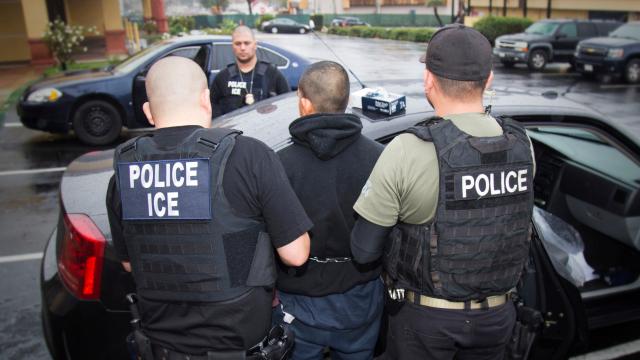Records obtained by the ACLU of Northern California in a Freedom of Information Act (FOIA) lawsuit show that local city governments are piping automated licence plate reader (ALPR) data to Immigrations and Customs Enforcement, the organisation wrote on Wednesday.
The ACLU-NC wrote the records show that more than 9,000 ICE officers have been granted access to an ALPR database run by a private company, Vigilant Systems. More than 80 law enforcement organisations in more than a dozen states have also begun sharing licence plate data with ICE, and in some cases “local police [have handed] driver information over to ICE informally, violating local law and ICE policies,” the ACLU-NC wrote.
Per the Washington Post, the data is obtained from traffic control systems, toll roads, parking lots, police squad car scanners, and other sources across the U.S., which is then matched to licence plate data indicating who the vehicle was registered to. There appears to be “few legal limitations” on the practice, the Post wrote:
The database contains billions of records on vehicle locations captured from red-light and speed-limit cameras as well as from parking lots and toll roads that use the nearly ubiquitous and inexpensive scanners to monitor vehicle comings and goings.
Local police forces have long used those scanners to track criminal suspects and enforce traffic laws across the United States… The revelation drew sharp criticism from Democratic Sen. Ron Wyden of Oregon, who said the mere notion of “a massive, for-profit location-tracking database is about the worst idea I have ever heard of when it comes to Americans’ privacy and security.”
The ACLU-NC wrote that the documents show the Vigilant Systems database contains over five billion unique licence plate scans from private businesses, and its “commercial database” is stated to be adding “an average of 150-200 million unique records each month.” Cooperation from law enforcement has added another 1.5 billion records to the pile.
The documents also claim Vigilant Systems draws licence plate info from the 50 most populous metro areas in the U.S., or roughly six out of ten people residing throughout the nation.
In some cases, the sharing of ALPR data may violate “sanctuary city” laws that prevent local law enforcement from assisting federal immigration authorities, the ACLU-NC added, especially when ICE uses those agencies as an intermediary to gain access to records from other police departments.
The ALPR data is likely being used to assist ICE in deportations — which ICE carried out on over 256,000 people last year. In a statement to the Washington Post, ICE spokesman Matthew Bourke would only say that the database is not used to track individuals “who have no connection to ICE investigatory or enforcement activities.”
“All authorised ICE users must complete appropriate training before accessing the commercial LPR database,” an ICE spokesperson told the Verge. “Additionally, all ICE employees are required to take mandatory training for data security, privacy, information assurance, and records management on an annual basis.”
As the Post noted, however, use of the database does not require authorization from a judge—unlike other police tactics like attaching GPS trackers to cars — and “the scanners log licence-plate data on every passing car, and not just those owned by criminal suspects.”
“Local governments need to take immediate action to limit the exposure of local residents’ information to ICE and withhold information from fusion centres that do not do the same,” the ACLU-NC concluded.
“ICE has long embraced technology to target immigrants. Now it’s taking surveillance to an unprecedented level to target vulnerable communities — and sweeping up everyone else in the process.”
